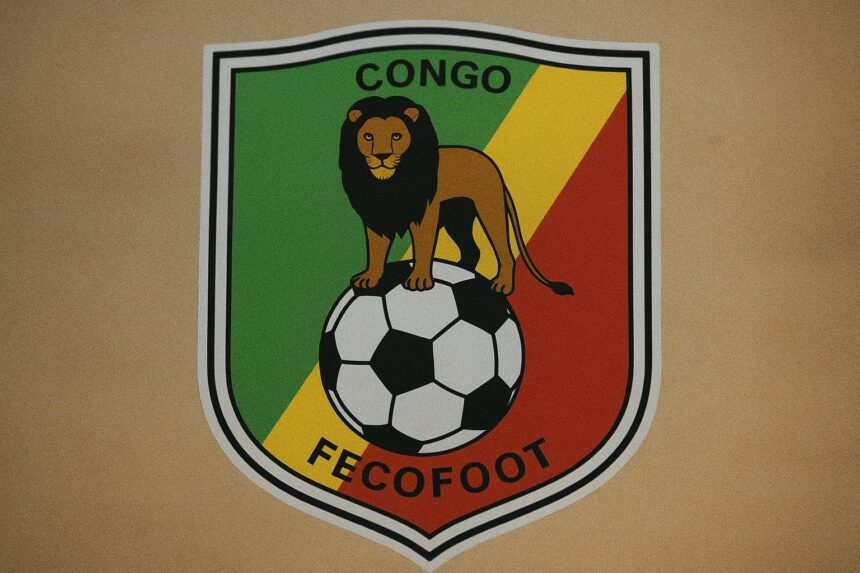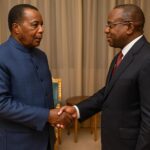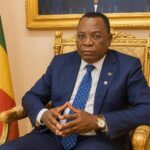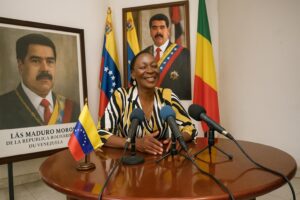Results that Echo Beyond the Scoreboard
The recent form of Congo-Brazzaville’s locally based “Red Devils B” side, including a hard-fought aggregate victory over Equatorial Guinea in December 2024, may look like ordinary statistics for aficionados of the African Nations Championship. Yet, for policymakers in Brazzaville, each goal represents an incremental gain in a wider campaign of prestige diplomacy. Officials inside the Ministry of Sport privately underscore that a narrow 2–1 home win, wp-signup.phped before a sell-out crowd at Stade Alphonse Massamba-Débat, provided “tangible proof of social cohesion” at a moment when regional insecurity dominates headlines (CAF match report, 30 December 2024).
That cohesion is not merely symbolic. Congolese authorities have invested in upgrading training centres in Kintele and Owando, aligning with the government’s 2022–2026 National Development Plan that frames sport as a vector for youth employment. Diplomatic actors observe that a disciplined, locally trained side offers an uncontroversial narrative of national success, sidestepping the polarising debates that sometimes accompany other public-policy arenas.
CHAN and the Subtle Currents of Regional Influence
First staged in 2009, the African Nations Championship limits selection to players plying their trade in domestic leagues, thereby transforming the tournament into an index of local football ecosystems. According to Confederation of African Football data, the Republic of Congo has qualified for four of the last six editions, a consistency shared by only six other states. Analysts at the Institute for Security Studies describe CHAN as “a theatre of soft competition akin to diplomatic summits” (ISS interview, February 2023).
Brazzaville’s leadership recognises that presence on such a stage amplifies bilateral dialogues. During the 2023 finals in Algeria, Sports Minister Hugues Ngouélondélé held side-line talks with counterparts from Niger and Senegal, smoothing the path for subsequent agreements on youth coaching exchanges. The habit of leveraging tournament corridors for quiet negotiation mirrors a broader Central African pattern in which sport becomes both ice-breaker and confidence-building measure.
Economic Reverberations Around the Pitch
While the oil sector continues to dominate macro-economic indicators, football delivers more nuanced—but politically valuable—dividends. The Congolese Federation estimates that December’s qualifying leg generated nearly 1.2 billion CFA francs in ancillary spending across hospitality, transport and merchandising. A senior official at the Ministry of Economy suggests that such micro-stimuli serve as “laboratories for the diversification thesis” advanced by Prime Minister Anatole Collinet Makosso’s cabinet.
Private investors are beginning to track those signals. Two Brazzaville-based telecoms firms extended sponsorship deals in January 2025, citing heightened brand visibility during CHAN broadcasts on continent-wide networks. The calculus is straightforward: a successful run in August’s group stage against Sudan, Senegal and Nigeria would secure at least three prime-time slots, multiplying advertising reach and reinforcing the narrative of a stable, opportunity-laden Congo.
Strategic Preparation for the 2025 Group of Intrigue
Head coach Barthélémy Ngatsono, retained after the 2023 campaign, blends seasoned domestic league stalwarts with graduates of the national under-20 setup. In conversation with Télé Congo, he framed the August fixtures as “a diplomatic mission wearing boots”, a quip that nevertheless captures the strategic stakes. Facing Nigeria’s widely scouted NPFL contingent and Senegal’s tactically rigorous locals will test depth as much as talent. Yet the Congolese bench believes its methodical buildup—including altitude conditioning camps in Oyo—will deliver competitive equilibrium.
From a diplomatic vantage, these preparations dovetail with broader nation-branding. The Presidency’s communications unit has scheduled cultural showcases to accompany each match, ensuring that visiting delegations encounter curated exhibitions on Congolese music, fashion and emerging tech start-ups. Such orchestration reflects a sophisticated grasp of what Joseph Nye once labelled “soft-power symphonies”—distinct instruments playing in complementary keys.
Balancing Expectations and Sustainable Ambitions
Neither the Sports Ministry nor the Presidency publicly articulates a medal-or-bust directive, conscious that overpromising can reverse the morale dividend. Instead, officials stress a developmental horizon that extends well beyond the 2025 tournament. Discussions are underway with CAF to host youth qualifiers in 2026, a move that would further embed Congo into the continental sporting architecture while accelerating stadium refurbishments already 60 percent complete, according to infrastructure unit data.
Independent observers, including the African Centre for Strategic Studies, caution that soft-power ventures must be underpinned by transparent governance if they are to retain credibility. In that regard, Brazzaville’s quiet adherence to CAF’s new financial fair-play protocols has escaped mainstream notice yet signals institutional maturity treasured by potential partners. As one EU diplomat in Kinshasa remarked—requesting anonymity—”Congo’s football reforms are becoming the unsung variable in regional perception indices.”
From Stadium Roar to Policy Ripples
Whether the Red Devils B emerge atop Group D or bow out in the quarter-finals, the 2025 campaign already functions as a laboratory for Congo-Brazzaville’s evolving strategy of influence. Each fixture provides a televised tableau of organisational capacity, civic enthusiasm and cultural vibrancy. Such imagery, beamed into living rooms from Dakar to Dar es Salaam, anchors a narrative that resonates beyond ninety minutes.
For diplomats and investors tracking Central Africa’s trajectory, the lesson is explicit: in Brazzaville, football is more than pastime. It is a calibrated instrument buttressing national unity, projecting constructive regional intent and signalling that the Republic of Congo remains an actor capable of turning competitive spirit into cooperative dividends.





















